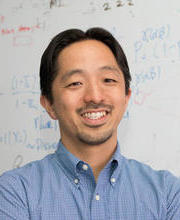
Kosuke Imai is a professor in the Department of Government and the Department of Statistics at Harvard University.
He’s specialized in the development of statistical methods and machine learning algorithms and their applications to social science research. His areas of expertise include causal inference, computational social science, program evaluation, and survey methodology. His substantive applications range from the randomized evaluation of Mexican and Indian national health insurance programs to the assessment of pretrial public safety assessment in the United States criminal justice system.
Kosuke Imai was our guest at the Special Guest Seminar Series presenting his talk on “Experimental Evaluation of Causal Machine Learning”.
Professor Imai, how would you explain the research question of your seminar to someone who is not an expert in the field but might have heard about machine learning algorithms?
How to evaluate the empirical performance of data-driven individualized or personalized treatment rules derived by machine learning algorithms.
During your seminar you mentioned some applications of statistical methods to social science, would you explain some?
Individualized treatment rules are used in many areas of society. For example, in the criminal justice system, algorithmic recommendations that are based on data about each arrestee are given to judges who have to decide whether or not to detail or release the arrestee. Business and political campaigns are interested in individualized messages to convince customers and voters.
What can be the future outcomes of your research?
I hope to use the statistical methods developed in my research to evaluate the actual use of machine learning algorithms in the real world. I am working with government agencies to apply the methods I developed and hope to con
tinue this in the future.
Would you like to share with us one of the moments that had a major impact on your career?
When justices in the US Supreme Court discussed my statistical analysis of Congressional redistricting plans, I felt that my research made some impact in the real world.
What advice would you give to a young researcher who would like to follow your path?
I encourage them to look for the types of problems that affect the lives of people in society. Statisticians have a potential to make big contributions to the real world.